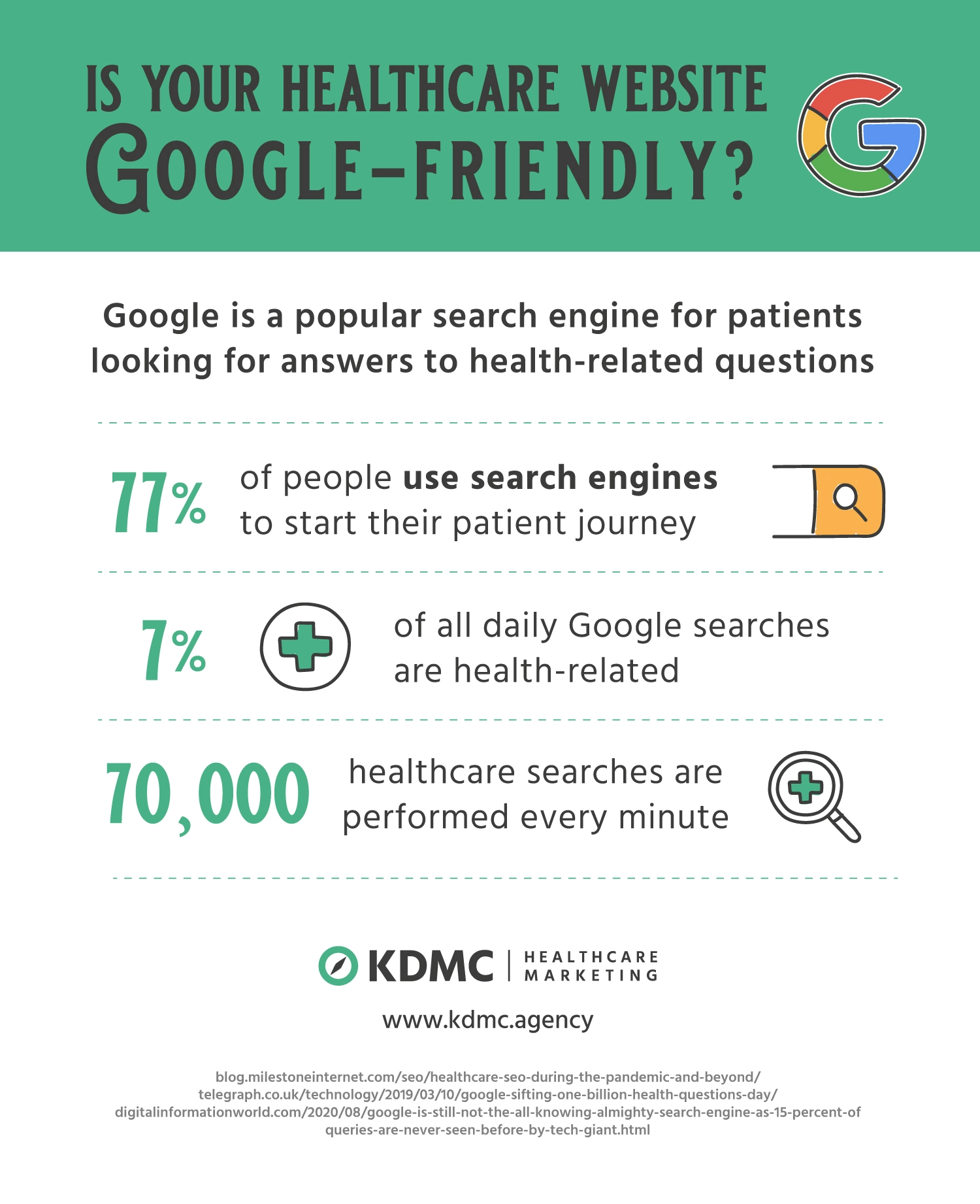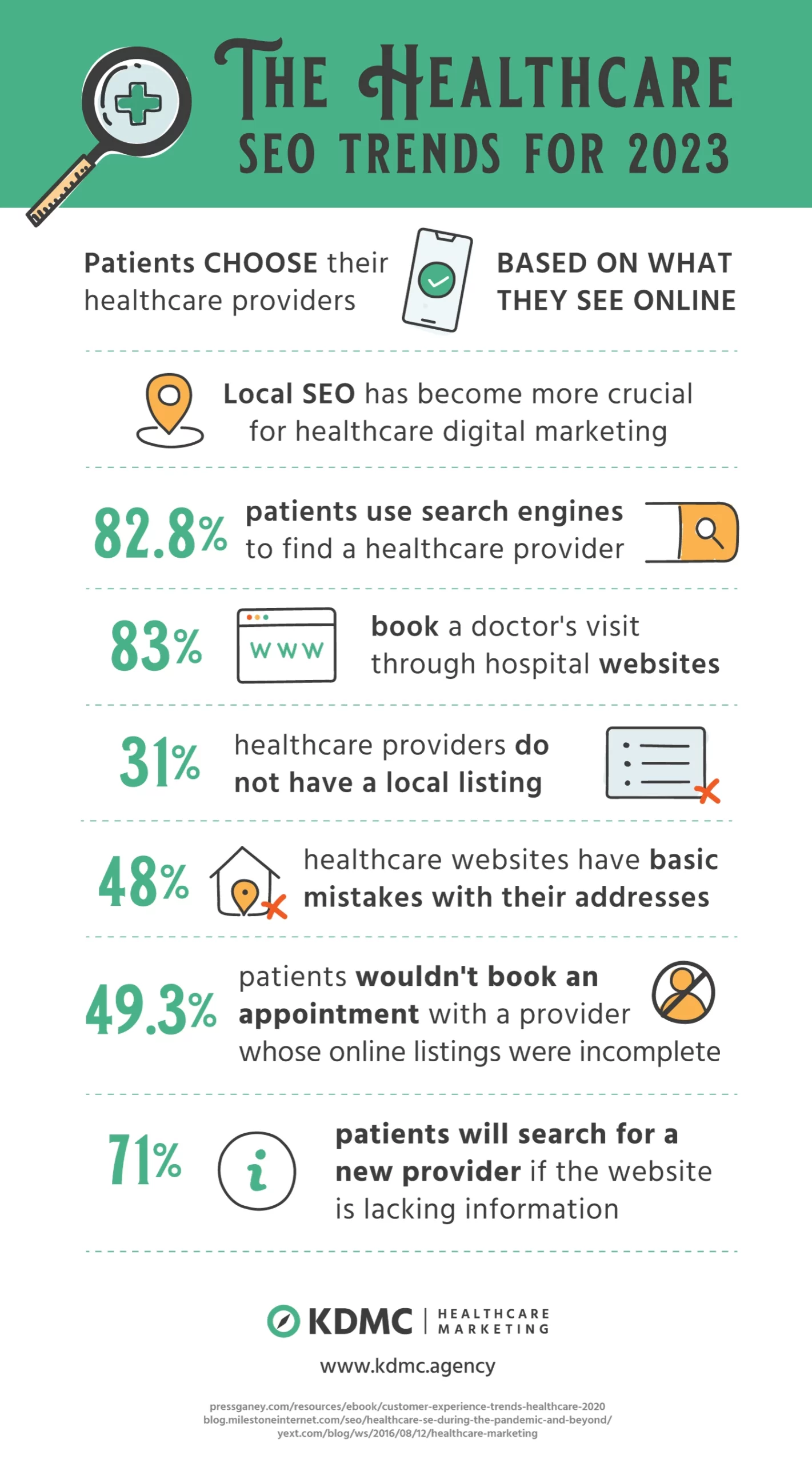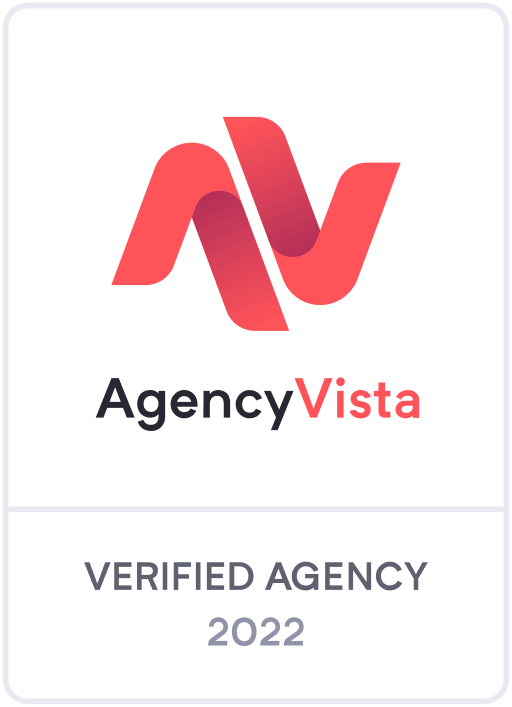
Marketing in the healthcare industry has evolved significantly over the years. One significant change is the utilization of Search Engine Optimization (SEO) as a key strategy for healthcare providers to attract and retain patients. The primary reason SEO has become important to providers and practitioners is that SEO is exceptionally cost effective, particularly over time.
By improving the visibility and ranking of a website in Search Engine Results Pages (SERPs) for specific topics, keywords, and phrases, healthcare providers will see a significant increase in website traffic over time. This will drive lead gen and retention both improving the ROI from your marketing budget. We will discuss the impactful elements of SEO that healthcare providers need to understand and utilize to increase the ROI from their marketing budgets in this article.

Understand Your Target Audience and SERPs Competitors
Understanding who your customer is the first step in any marketing strategy⸺SEO strategies are no different. You must know your target audience. Healthcare providers need to identify the needs, preferences, and search behavior of their potential patients to create content that is relevant and engaging. Topic and keyword research is an essential component of this process, as it provides insight into the specific behaviors of your target audience when they are using search engines when looking for healthcare services.
Take for example, if you run a dental clinic, you might find that people search for “teeth whitening services” or “dental implants” more frequently than “preventive dental care.” You can create content focused on topics like “teeth whitening” or “preventive dental care”. Doing so utilizes keywords and search phrases that have high search volumes and relevance for your target audience and the search algorithms. Both will drive traffic to your website because of the interest from humans and their ability to find you easily via search engines.
Technical SEO: Fix What’s Broken and Make Good Better
Once you understand your target audience and have identified the keywords and phrases that are most relevant to them, it’s time to optimize your website. There are several key areas of your website that you need to focus on to improve your SERP position via SEO. The exact ranking factors that search engine algorithms use to determine the relevance and importance of web pages are not known (even though some claim to know). However, based on industry research and analysis, we have a good idea what some of the top technical SEO ranking factors are.
Top Technical SEO Ranking Factors
- Site Speed and Page Load Time: Faster loading pages tend to rank higher in search results, as users prefer websites that load quickly. Optimizing image sizes, leveraging browser caching, minimizing HTTP requests, and reducing server response time can improve site speed.
- Mobile-friendliness: The majority of internet traffic now comes from mobile devices, search engines prioritize mobile-friendly sites in their results. A responsive design, fast mobile page speeds, and mobile-specific user experience optimizations are essential for mobile SEO.
- Site Architecture and Structure: An organized and well-structured site hierarchy with clear navigation paths, a logical URL structure, and effective internal linking can help search engines understand the content on your site and improve user experience.
- Security and HTTPS: Websites that use HTTPS, which encrypts data transmitted between the server and the user’s browser, are viewed as more secure by search engines. Using HTTPS can also boost user trust and prevent data breaches.
- Technical Markup and Structured Data: Implementing structured data markup can help search engines better understand the content on your website and display more relevant information in search results. This includes schema markup for entities such as products, reviews, and events.
By implementing technical SEO best practices, especially the ones above, you can enhance your website’s positioning on SERPs which will help you reach your intended audience. Improving the ranking factors from the list above can significantly enhance the visibility and user experience of your website. Together, these will help improve your position on SERPs but these are just a few of the hundreds, if not thousands, of factors that search engine algorithms utilize to rank your content’s search results above your competitors. Therefore, investing time and resources in technical SEO can have a positive impact on the long-term ROI of your website.

On-page SEO: Great Content Needs Great Structure
On-page SEO techniques involve optimizing elements that users interact with on your site and on the SERP. There are several effective on-page SEO techniques that can help your website attract more traffic and improve its conversion rate. The importance of on-page SEO can’t be overstated.
The Most Important Elements Of On-Page SEO
- Keyword Optimization: Proper keyword optimization can help your website rank higher in SERPs for relevant search queries. By using the right keywords in your website’s title tags, meta descriptions, headings, content, and URLs, you can attract more organic traffic to your site, which can lead to more conversions and sales.
- Content Optimization: High-quality, informative, and relevant content is key to engaging your audience and keeping them on your site for longer periods. Optimizing your content for search engines by including relevant keywords, internal and external links, and formatting your content with headings, bullet points, and images can help improve your website’s rankings and user engagement.
- Meta Tag Optimization: Meta tags, including title tags and meta descriptions, provide search engines with important information about your website’s content. By optimizing your meta tags with relevant keywords and compelling copy, you can attract more clicks from search engine users, leading to increased traffic, engagement, and conversions.
- URL Optimization: Optimizing your website’s URLs can help search engines and users understand what your content is about. By using short, descriptive, and keyword-rich URLs, you can improve your website’s user engagement.
- Image Optimization: Optimizing your website’s images can improve your website’s user experience and search engine rankings. By compressing your images to reduce their file size, using descriptive file names and (most importantly) alt tags, and properly sizing and formatting your images, you can increase the chance that they appear in the SERPs. This is important since over 30% of Google searches are now image searches.
- Conversion Rate Optimization: Conversion Rate Optimization (CRO) is the process of optimizing a website or digital marketing campaign to increase the percentage of website visitors or users who take a desired action, such as making a purchase, filling out a form, or subscribing to a newsletter.
Incorporating these on-page SEO techniques into your website’s strategy can help improve its search engine rankings, user engagement, and conversion rates i.e. your ROI. By optimizing elements that users interact with on your site and the SERP you can attract more organic traffic, engage your audience, and drive more conversions. By continuously analyzing and improving the on-page elements of your website, you will achieve long-term success in the digital marketplace and a higher ROI for your marketing budget.
Build Quality Backlinks
Backlinking is an essential component of any healthcare SEO strategy. In a highly competitive and regulated industry like healthcare, it is critical to have a strong online presence to attract and retain patients. Backlinking involves obtaining links from other websites to your healthcare site, which helps search engines understand that your site is trustworthy and authoritative. This, in turn, can improve your site’s search engine rankings, visibility, and traffic.
One reason why backlinking is important for healthcare SEO is that it can help establish your healthcare site as an authoritative source of information. Healthcare is a complex and ever-changing industry, and patients are increasingly turning to the internet to research their health concerns and treatment options. By earning backlinks from reputable healthcare organizations, medical journals, and other relevant sites, you can demonstrate to search engines that your site is a reliable and trustworthy source of information. This can help improve your site’s search engine rankings and increase its visibility to patients who are actively seeking healthcare information.
Another reason why backlinking is important for healthcare SEO is that it can help you reach a wider audience of patients. Healthcare is a local industry, and most patients prefer to receive care from providers in their local area. By earning backlinks from local directories, healthcare providers, and other sites that are relevant to your local community, you can increase your site’s visibility to local patients who are searching for healthcare services. This can help drive more traffic to your site and increase the likelihood that patients will choose your healthcare organization for their medical needs.
Five Ways To Get Backlinks For Your Healthcare Website
- Create High-quality, Informative Content: One of the most effective ways to earn backlinks for your healthcare website is to create high-quality, informative content that other websites will want to link to. This can include blog posts, articles, infographics, and other types of content that provide valuable information to patients and other healthcare professionals.
- Reach Out to Other Healthcare Websites: Another way to earn backlinks for your healthcare website is to reach out to other healthcare organizations and websites in your niche. You can offer to contribute guest posts, participate in interviews or podcasts, or collaborate on research or other healthcare-related projects.
- Participate in Healthcare Forums and Online Communities: Healthcare forums and online communities can be a great source of backlinks for your website. By participating in these communities and providing helpful advice and insights, you can build relationships with other healthcare professionals and earn backlinks to your site.
- Use Social Media to Promote Your Content: Social media can be a powerful tool for promoting your healthcare content and earning backlinks to your site. By sharing your content on social media and engaging with other healthcare professionals and organizations, you can increase the visibility of your site and encourage others to link to your content.
- Use Directories and Listings: Another way to earn backlinks for your healthcare website is to use directories and listings(the best is Google My Business). There are many online directories and listings that are specifically designed for healthcare organizations, such as Healthgrades and Zocdoc. By submitting your healthcare organization to these directories and listings, you can increase the visibility of your site and earn valuable backlinks.
Finally, backlinking is important for healthcare SEO because it can help improve the overall user experience on your healthcare site. By linking to high-quality, authoritative sources of information, you can provide patients with a wealth of knowledge and resources to help them make informed healthcare decisions. This can help build trust and credibility with patients, which is essential in the healthcare industry. Additionally, by earning backlinks from other healthcare organizations, you can establish valuable partnerships and collaborations that can benefit your patients and your healthcare organization as a whole.
SEO = High ROI for Healthcare Providers
SEO has become an increasingly vital aspect of healthcare marketing, enabling healthcare providers to attract and retain patients while enhancing their ROI from marketing budgets. Effective SEO requires a deep understanding of the target audience and their search behavior to create content that is relevant and engaging. It is also essential to implement technical SEO best practices to enhance website positioning on SERPs and on-page SEO techniques to optimize elements that users interact with on your site and on the SERP.
SEO’s impact on ROI can be significant, with the ability to drive lead generation and retention by improving website visibility and ranking in SERPs. By investing time and resources in SEO, healthcare providers can enhance their website’s positioning, visibility, user experience, and lead generation, thereby increasing their ROI in the long run. Therefore, SEO should be a priority for healthcare providers looking to gain a competitive edge in today’s digital landscape.


